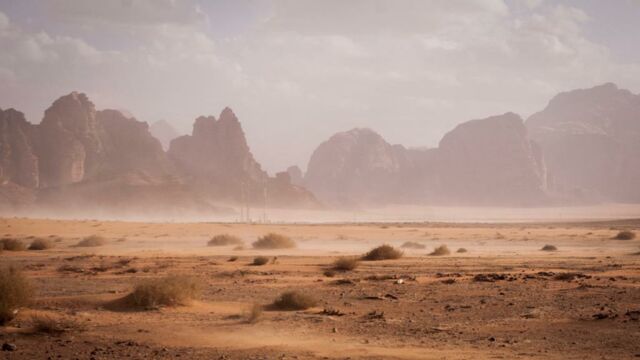The effects of climate change are becoming increasingly evident, especially in certain regions of the world. In the latest report of the Intergovernmental Panel on Climate Change, the experts warn of 'wet heatwaves.'
Discover our latest podcast
The intense heat and high humidity of this climatic phenomenon have already made two areas on Earth uninhabitable in modern times. There will be more by the year 2070.
What are wet heatwaves?
The combination of extreme temperatures and very high humidity makes the climate virtually unbearable for the human body, which easily overheats under these conditions.
Journalist Valérie Heurtel explains:
If the air is dry, we can withstand extreme heat of 60 to up to 100 degrees for a short period of time. In dry air, sweat evaporates and thus cools us down. In air saturated with humidity, sweat can evaporate poorly, as a result the body overheats.
The phenomenon of wet heatwaves can therefore have dramatic consequences, as sports cardiologist Dr Laurent Uzan explains:
The body temperature rises, one can get visual field restrictions, dizziness, neurological complaints, it can even lead to coma, convulsions or severe heart and kidney problems.
Read more:
- Climate change blamed for spike in ‘divorce’ rate among albatrosses
- This patient is the first in the world to be diagnosed with climate change
- Animals are evolving to cope with the climate crisis
Two uninhabitable areas
In a draft report, UN climate experts state that 'the ability to withstand these extremes can be determined using a scientific approach: The wet bulb temperature, TF.'
According to this, a human being can only withstand temperatures above 35 degrees TF for a very short time. Two areas on Earth are particularly affected by this phenomenon and are therefore already considered uninhabitable for humans:
Ras Al Kaimah in the United Arab Emirates and Jacobabad in Pakistan. According to the experts, Europe will also soon experience wet heat waves.
Did you know that the climate determines how tall we become? Moreover, climate change not only endangers over 400,000 species in the world, but also the internet.















